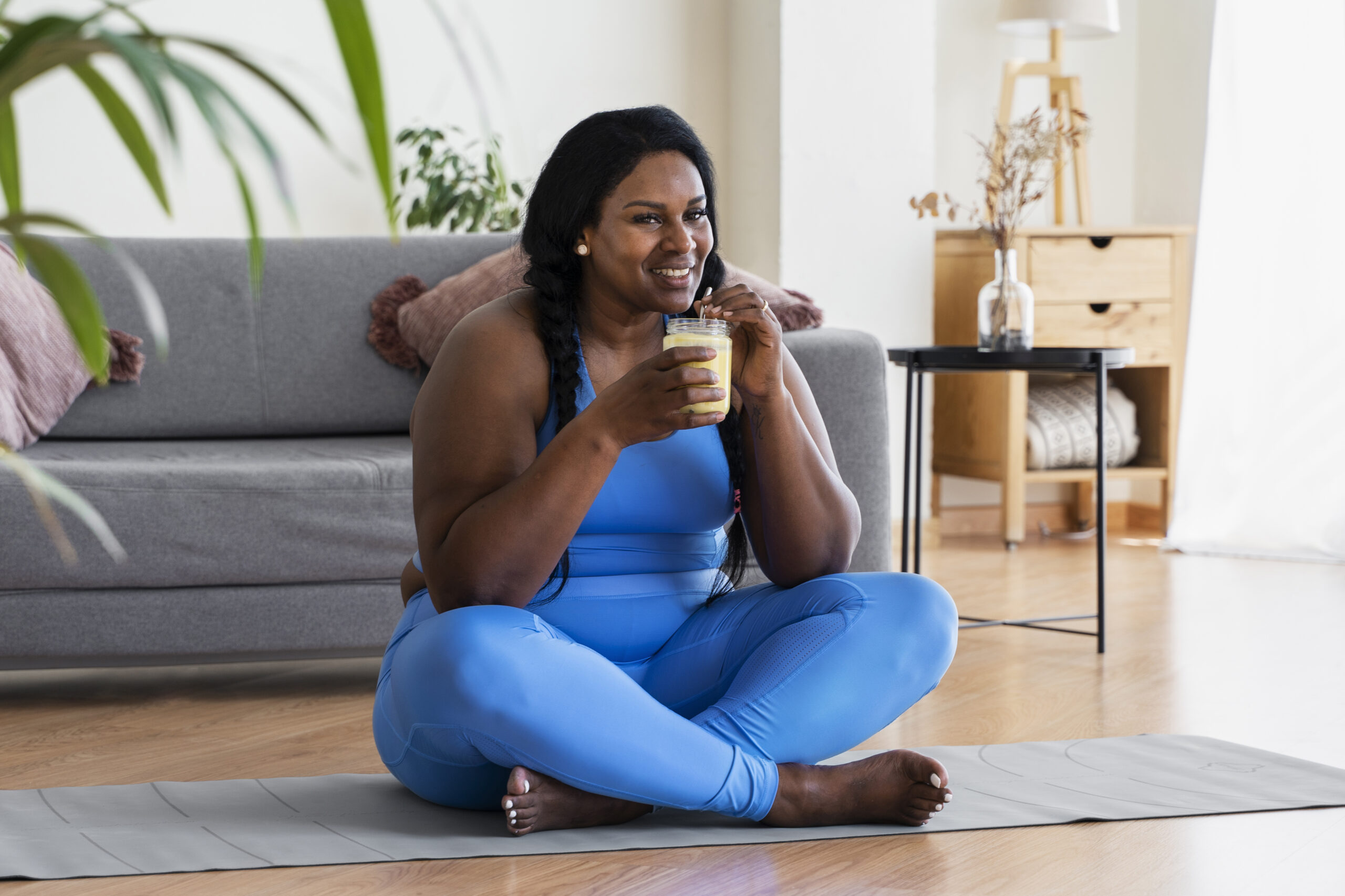I learned this the hard way. For months, I was dragging myself through the day, forgetting simple things like where I put my keys, and generally feeling like a tired, moody shell of myself. I blamed it on “mom brain,” stress, or just the never-ending to-do list that comes with juggling work and family. But deep down, I knew something wasn’t right.
Finally, I sat down with my Primary Care Provider and friend, Nkechi Ileka-Adeoye, NP, Founding Member of Divine Care Services, and had an honest conversation. Turns out, it wasn’t just stress or the chaos of life—it was my hormones waving the white flag. Specifically, my testosterone levels had taken a nosedive, and it was affecting everything from my energy to my mental clarity.
Here’s the kicker: I had no idea testosterone played such a huge role in women’s health. It felt like someone handed me a cheat code for feeling better, and now I can’t stop talking about it. Testosterone therapy is a game-changer, and it’s high time we women started paying attention to this often-overlooked hormone hero.
What Nkechi shared with me was eye-opening, and I’m sharing it with you because no one should have to settle for feeling “off.” You deserve to feel strong, focused, and alive. And testosterone might just be the missing piece of the puzzle.
How Testosterone Impacts Women’s Health?
For years, testosterone has been seen as a “male” hormone, but it’s just as crucial for women. Nkechi explained how testosterone works behind the scenes to support key areas of women’s health and vitality.
Think about those days when you feel invincible, full of energy, and mentally sharp—that’s testosterone doing its job. Here are just a few ways it supports your body and mind:
-
Energy Levels
Testosterone is a driving force behind your ability to juggle work, family, and all the other demands life throws your way. When levels are low, you might feel like you’re running on empty, even after a full night’s sleep. According to studies, women experiencing fatigue and decreased energy may benefit from testosterone therapy, as it supports metabolic processes and endurance. If you’ve been feeling unusually drained, this hormone could be the missing puzzle piece to restoring your vitality.
-
Muscle and Bone Strength
As we age, it’s normal to notice changes in muscle tone and bone density, but that doesn’t mean you have to accept them without a fight. Testosterone supports muscle repair and helps prevent the bone loss that leads to conditions like osteoporosis. According to the National Osteoporosis Foundation, women are particularly vulnerable to osteoporosis, with nearly 1 in 2 over age 50 experiencing a fracture due to weakened bones. Keeping testosterone levels balanced helps maintain strength and resilience as you age. Learn more about bone health from the National Osteoporosis Foundation.
-
Libido
Life’s chaos can sometimes push intimacy to the back burner, but testosterone plays a key role in bringing it back into focus. This hormone impacts sexual desire, arousal, and satisfaction, and low levels can make connecting with your partner feel like a chore rather than a joy. Research published in Menopause: The Journal of The North American Menopause Society shows that testosterone therapy can help women regain their sexual health and rekindle intimacy. Dive deeper into the connection between hormones and sexual health in this study from NAMS.
-
Mood and Mental Clarity
Low testosterone levels are often linked to brain fog and mood swings, which can make even simple tasks feel overwhelming. Balanced testosterone supports cognitive functions, stabilizes mood, and helps reduce symptoms of anxiety and depression. A study in The Journal of Clinical Endocrinology & Metabolism highlights how testosterone therapy improves both emotional well-being and mental clarity in women. Explore the research on testosterone and mental health on PubMed.
-
Overall Vitality
Feeling strong, capable, and confident isn’t just about mindset—it’s about chemistry. When hormones like testosterone are in balance, they fuel your overall vitality, helping you tackle challenges with energy and enthusiasm. It’s about living life on your terms, regardless of age. Hormonal balance is key, and testosterone is an unsung hero in that equation.
What Are the Signs You Shouldn’t Ignore?
Women’s testosterone levels naturally decline with age, but there are specific life stages when this drop can be more noticeable—and disruptive. Nkechi shared some key times when it’s especially important to pay attention to how you’re feeling:
Perimenopause and Menopause
These phases bring hormonal fluctuations that can lead to fatigue, mood swings, and a noticeable decrease in libido. Many women assume these changes are inevitable, but testosterone therapy could help ease the transition by addressing these symptoms directly.
Post-Pregnancy
Even after the baby arrives, your body continues to navigate a hormonal rollercoaster. For some women, the exhaustion and mental fog that linger for months—or even years—after childbirth may be linked to low testosterone.
Your 40s and Beyond
You don’t need to be in menopause to experience a decline in testosterone. Symptoms like constant tiredness, low motivation, and irritability can show up in your 40s as your hormone levels start to shift.
If any of this resonates, it’s worth checking in with your healthcare provider. A simple blood test can reveal whether your testosterone levels are contributing to these challenges.
How Can Testosterone Therapy Transform Your Life?
Nkechi calls testosterone therapy a “game-changer,” and that description is spot on. This isn’t about chasing unrealistic goals or trying to turn back the clock. It’s about reclaiming your energy, vitality, and joy so you can feel like yourself again.
Imagine waking up feeling rested and refreshed, tackling your day without relying on endless cups of coffee, and reigniting intimacy with your partner. Balanced testosterone levels can support all of these benefits. Plus, therapy can improve bone and muscle health, promote better sleep, and stabilize your mood, helping you feel stronger and more resilient every day.
Why Is There Still Stigma Around Testosterone?
Talking about hormones can feel taboo, but it’s time to break that silence. Women are often told to push through exhaustion or chalk up mood swings to “just life.” However, as Nkechi reminded me, you don’t have to accept these struggles as your norm.
Hormonal balance—including testosterone therapy—is about empowering yourself. When you feel off, it’s not just in your head. It’s your body sending a signal that deserves attention.
What’s Your Next Step?
If you’ve been feeling drained, foggy, or simply not like yourself, don’t brush it off. Start by having an honest conversation with yourself: Are you happy with how you feel, both physically and emotionally? If the answer is no, it’s time to take action.
The first step is to talk to your healthcare provider. A blood test can provide clarity about your hormone levels, and there are various ways to approach testosterone therapy, from creams to patches to injections, depending on your needs.
Everyone’s body chemistry is different, and what works for one person may not be right for another. Consulting with a medical professional is crucial to finding a solution that’s tailored to your health and lifestyle.
Remember, you deserve to feel your best. Taking the time to explore hormonal balance could be the key to unlocking the energy, vitality, and happiness you’ve been missing.
 Nkechi Ileka-Adeoye, CRNP is a the founder and president of Divine Care Service. She is board-certified and has more than 21 years of experience in providing preventive and primary care, chronic disease management and urgent care for acute illness for patients 16 years and older. She offers in-person, virtual and home visit. To learn more visit, https://mydivinecareservices.com/
Nkechi Ileka-Adeoye, CRNP is a the founder and president of Divine Care Service. She is board-certified and has more than 21 years of experience in providing preventive and primary care, chronic disease management and urgent care for acute illness for patients 16 years and older. She offers in-person, virtual and home visit. To learn more visit, https://mydivinecareservices.com/
Cover Photo by freepik.com



